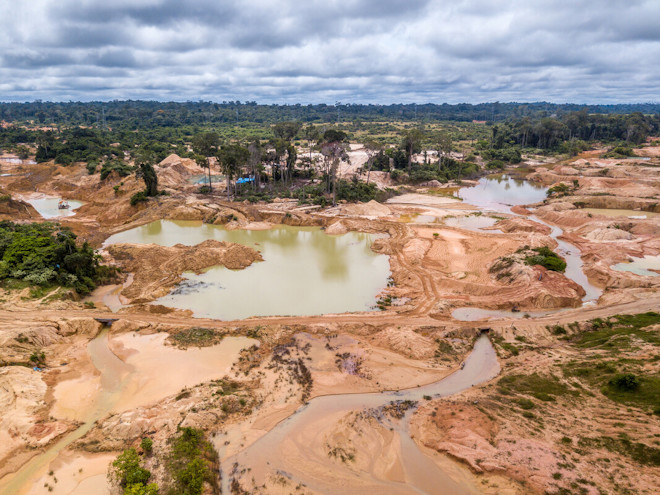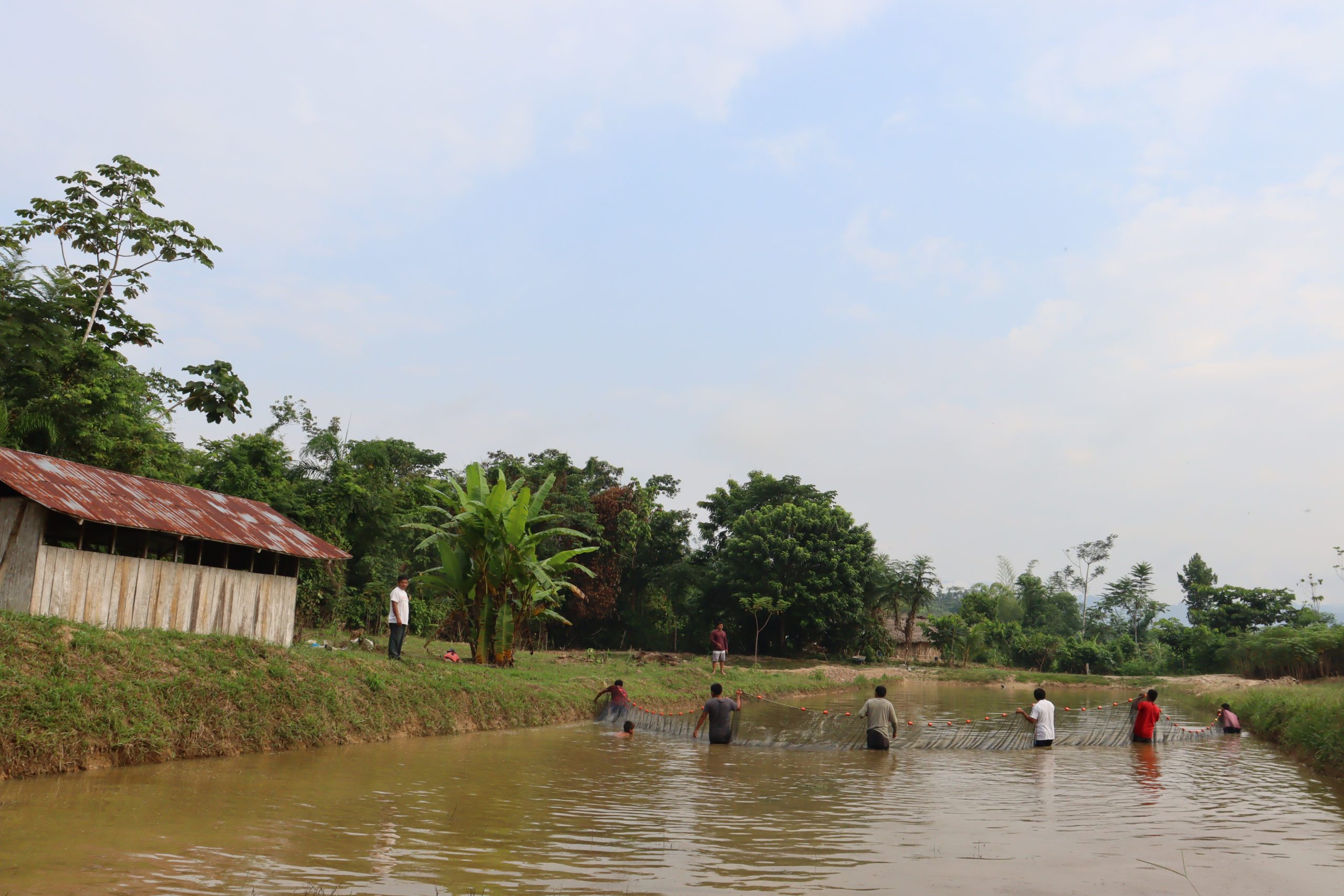The true cost of mining on the Amazon Rainforest
Illegal mining is taking a toll in more ways than one on the Amazon rainforest.
Hector (whose name we have changed for his safety) together, with his wife and two young children, live in a community nestled on the edge of an Amazon river tributary. This river is an integral part of his daily life, providing vital fish to feed his family and water for his community to drink, bathe in and enjoy. But this all-important river has come under threat, with devastating consequences.
Hector has become used to the crashing sounds coming from across the river, a sound so loud it booms for miles. It’s the sound of an illegal mine, tearing down the forest and disrupting the once tranquil river.


Aerial view of deforested area of the Amazon rainforest caused by illegal mining activities in Brazil. Deforestation and illegal gold mining destroy the forest and contaminate the rivers with mercury.
Illegal mining is rife in the Amazon, mines pop up overnight destroying large areas of forest to find any precious metal they can. Mining not only leads to deforestation but also river pollution as toxic chemicals such as mercury are released into the soil and water.
Because of this fish stocks have plummeted, leaving Hector and his family without a food source. Along with this, the water is no longer safe to drink or bathe in, with adults and children suffering from skin diseases and stomach issues.
The significance of this cannot be understated. This river is the main source of food and water for many communities already facing malnutrition. And in times of desperation, with no income to help pay for food and healthcare, communities are left with no other option but to sell their land to these exploitative industries.
The power of community-led projects
Hector has joined our community-led fish farming project. Together with his community, he is building on his expertise and learning to construct ponds and raise native Amazon fish species.
Thanks to the project, his family no longer have to rely on catching fish from the contaminated river. They no longer have to fear mercury poisoning from simply eating.
“Before the Cool Earth projects came in, there wasn’t much income, because we didn’t raise fish, there was nowhere to eat and what we took out of the river was scarce, it was dangerous too”, says Hector.


The Awajún community fish farming.
Fish farms do not only provide food, they create choice. They provide an income. They improve health. And, they bring purpose, even in the most challenging of times.
Now, Hector and his young family no longer have to fear whether they can provide for their children. Even better, they have some extra money from fish sales to send their eldest child to school.
Looking ahead
The good news is these situations are avoidable with your help. We can engage with local communities, promote sustainable practices, and advocate for the rights of Indigenous peoples to create a holistic approach that integrates environmental protection and social empowerment.
We can’t always stop the mining but we can help our rainforest partners stay healthy and resilient. This means they can continue to live alongside and protect rainforests as they have always done.
